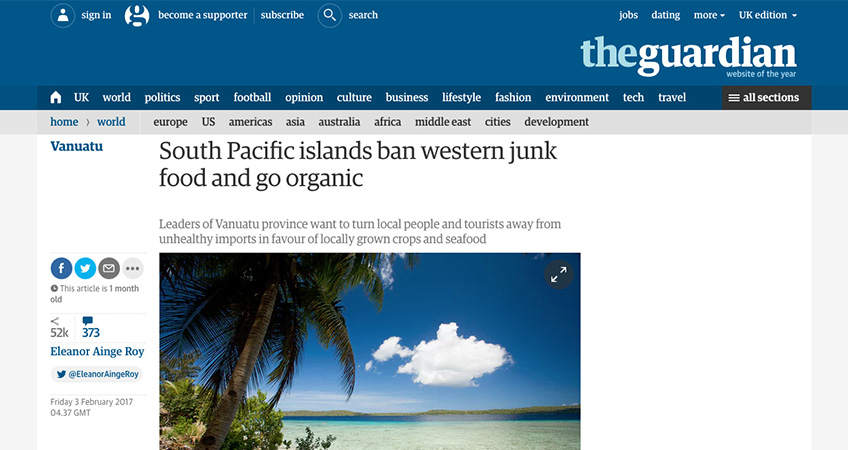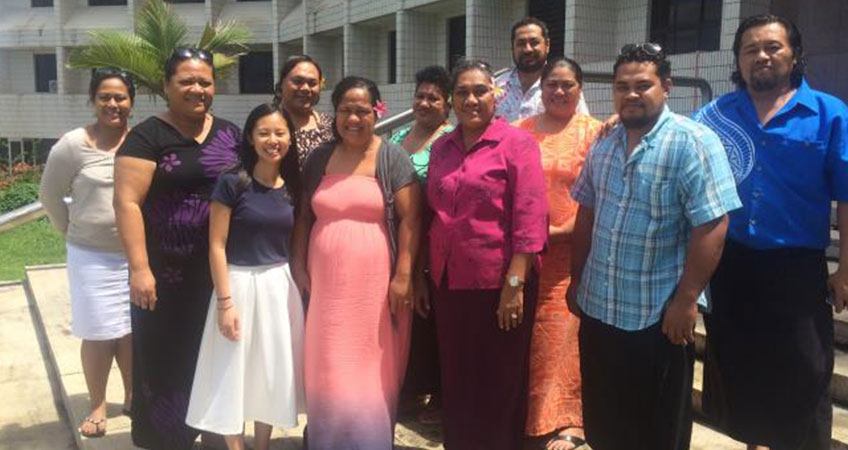Cost savings and health gains estimated from achievement of the US Food and Drug Administration voluntary sodium reformulation targets

Pearson-Stuttard J et al recently published a paper in PLoS Medicine estimating the health and economic effects of the proposed US Food and Drug Administration (FDA) voluntary sodium reformulation. The US IMPACT Food Policy Model was used to estimate cost-effectiveness and health impact of three scenarios; 100% compliance with 10-year reformulation targets, 50% compliance with […]
Sodium intakes of US adults exceed recommendations

A study conducted by Cogswell M et al and published by JAMA investigated sodium intake in US adults. Data was used from the National Health and Nutrition Examination Survey, with 827 adults providing 24-hour urine sample in 2014. Mean sodium intake estimated by 24-hour urine was 3608mg/d, 4205mg/d for men and 3039mg/d for women. Results […]
Process Evaluation Informs Future Salt Reduction Strategies in the Pacific Islands

Fiji specific results from the Global Alliance for Chronic Diseases (GACD) project on “Cost-effectiveness of salt reduction strategies in the Pacific Islands” led by The George Institute for Global Health in collaboration with C-POND, Fiji, have been published in Nutrients. Webster et al conducted a process evaluation and costing of the multi-faceted population salt reduction […]
Food industry in Canada fail to meet salt reduction targets

Voluntary targets for sodium in various processed foods were introduced by the federal government (Health Canada) in Canada four years ago. These targets focused on 94 food categories within processed foods, aiming to reduce average sodium intake to 2,300mg in a two year period, yet in an evaluation of 10,000 products within the 94 food […]
Making sure all Australians have access to the care they need: response to Australia’s Federal Budget

“The George Institute welcomes the increased investment in the health system and in preventative health care so all Australians have access to the care they need. “Health Care Homes, a national opt-out My Health Record, cheaper medicines and new approaches to funding healthcare are integral to an equitable and 21st century health system. “Encouraging prescriptions […]
Salt reduction consultation meeting in South Africa

In September 2016, a high-level salt reduction consultation meeting was held in Cape Town, South Africa to discuss progress, challenges and the next steps for the country’s salt reduction strategy. The meeting was attended by 25 key participants from government, non-government organizations, universities and research organizations. To read the full report of the meeting, click […]
Vanuatu province declares war on junk foods

Vanuatu’s northern Torba province had imposed a ban on foreign junk foods in an effort to protect the health of its people. The head of the local tourism council, Father Luc Dini, has ordered the province’s bungalows and local stores to serve only locally-grown, organic products. Dini also plans to introduce legislation within the next […]
Data analysis training in Samoa

As part of the Global Alliance for Chronic Disease project on Cost-Effectiveness of Salt Reduction in the Pacific Islands, Kathy Trieu from the George Institute conducted training on data analysis with Samoa Ministry of Health and Samoa Bureau of Statistics on 22 November 2016. The aim of the training was to strengthen skills in using […]